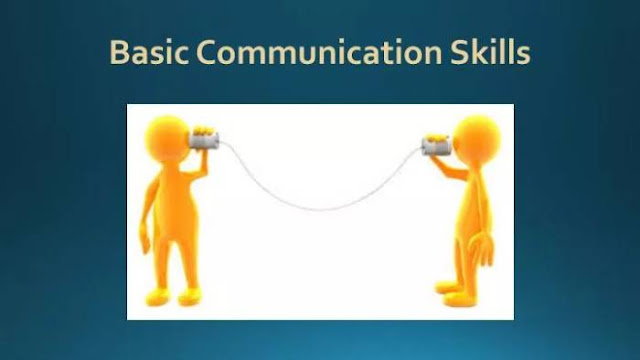What are the 5 basic communication skills?
Effective communication is a critical aspect of our daily lives, both personally and professionally. It is a skill that influences our relationships, success in the workplace, and our ability to convey our thoughts and ideas. While there are many components to communication, five basic communication skills stand out as fundamental for clear and effective interaction:
Listening:
Active listening is the foundation of effective
communication. It involves not just hearing the words being spoken, but also
understanding the speaker's intent, emotions, and perspective. This skill is
crucial because it demonstrates respect and empathy, encourages open dialogue,
and helps build trust. To be a good listener, one should maintain eye contact,
avoid interrupting, ask clarifying questions, and provide verbal and non-verbal
cues to show engagement and comprehension.
Speaking:
The ability to express your thoughts and ideas clearly and
concisely is another essential communication skill. Effective speaking involves
organizing your thoughts, using appropriate language, and adjusting your
message to your audience. It also requires the ability to control your tone and
body language to convey your message accurately. Good public speaking and
presentation skills fall under this category, which are crucial in both
personal and professional settings.
Non-Verbal Communication:
Often, our body language, facial expressions, gestures, and
posture can communicate more than our words. Non-verbal cues can influence how
your message is received and can convey emotions and attitudes. Understanding
non-verbal communication and being aware of the signals you are sending is
essential for effective interpersonal interactions. For example, maintaining
eye contact, offering a genuine smile, and adopting an open posture can all
enhance your communication.
Writing:
In today's digital age, written communication is more
prevalent than ever. The ability to convey your thoughts and ideas clearly
through written text is a vital skill. This includes emails, reports, essays,
and text messages. Effective writing involves proper grammar, spelling,
punctuation, and structure. It's important to consider your audience and purpose
when writing, as different contexts require different writing styles, whether
formal, informal, persuasive, or informational.
Empathy:
Empathy is the
ability to understand and share the feelings of others. It's not just about
listening but also about understanding the emotions and perspective of the
speaker. Empathetic communication is crucial in building and maintaining
relationships, as it demonstrates that you care about the other person's
well-being and are willing to see the situation from their point of view. It
also helps in conflict resolution by showing a willingness to find common
ground and compromise.
These five basic communication skills are interconnected and
complement each other. For instance, active listening enhances empathy, while effective
speaking requires an understanding of non-verbal cues. To master these skills,
individuals can take the following steps:
Practice: Like any skill, effective communication
requires practice. Engage in conversations, give presentations, and write regularly
to improve your skills.
Receive Feedback: Seek feedback from others to
identify areas for improvement. Constructive criticism can help you refine your
communication abilities.
Learn from Experts: Study and learn from experts in
the field of communication. There are many books, courses, and resources
available to help you develop your skills.
Observe Effective Communicators: Pay attention to
individuals known for their excellent communication skills, such as public
speakers, leaders, or colleagues. You can learn valuable techniques by
observing their interactions.
Adapt to Different Situations: Recognize that
different situations may require different communication approaches. Adapt your
communication style to suit the context and your audience.
Practice Empathy: Work on your ability to empathize
with others. Try to put yourself in their shoes, understand their perspective,
and respond with sensitivity and compassion.
Effective communication is an ongoing process, and mastering
these fundamental skills will not only improve your personal and professional
relationships but also open up new opportunities and avenues for success.
Remember that clear and empathetic communication is not just about the words
you say but also about how you say them and the emotions you convey.
Why is communication important in education?
Communication is vital in education because it serves as the
primary vehicle for sharing knowledge and fostering learning. Effective
communication between educators, students, and parents ensures the successful
transfer of information, clarifies expectations, and promotes engagement. It
enables teachers to convey complex ideas, inspire curiosity, and adapt teaching
methods to individual learning styles. In return, students can express their doubts,
seek clarification, and collaborate with peers. Furthermore, communication
helps build a supportive and inclusive learning environment, where everyone
feels valued and understood. Ultimately, it enhances the quality of education,
leading to improved academic outcomes and overall student development.
How to be a good communicator?
To be a good communicator, practice active listening, use
clear and concise language, maintain eye contact, adapt your message to the
audience, and be aware of non-verbal cues. Show empathy, ask for feedback, and
continually refine your communication skills through practice and
self-awareness.


Comments
Post a Comment